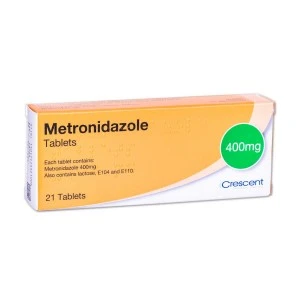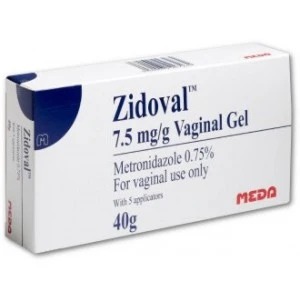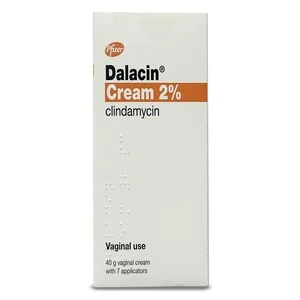How to Prevent BV (Bacterial Vaginosis): Dos and Don’ts for BV Prevention
Bacterial vaginosis (BV) is a common vaginal infection that has the potential to cause embarrassing and uncomfortable symptoms. Caused by an overgrowth of specific bacterial types, the condition can recur regularly. In fact, clinical results have shown that it returns for 69% of people within a year.
Given the infection’s potential prevalence, it’s a good idea to understand the warning signs and how to prevent BV from occurring in the first place. This is where Prescription Doctor can help.
Join us as we discuss potential signs and symptoms of the condition, along with essential BV prevention tips to give you the best possible chance of avoiding the infection or preventing it from returning. Let’s begin.
Warning Signs of Bacterial Vaginosis
Bacterial vaginosis is a common vaginal infection caused by an imbalance of the healthy vaginal bacteria and an overgrowth of “bad bacteria”. BV causes unusual vaginal discharge that can have a strong fishy smell, particularly after sex, and changes in the colour and consistency of discharge. For example, it may look grey and become thin and watery.
However, 50% of women do not get any BV symptoms, so you may be unaware that you have it. Therefore, if you have any inclination that something may be awry, it’s essential to get a diagnosis from a doctor or clinician to ensure you receive appropriate treatment.
BV Prevention: Dos and Don’ts
BV prevention can be obtained by taking simple steps that won’t impact your daily life, such as good hygiene, avoiding perfumed soaps, and practising safer sex. You should also consider stopping smoking, reducing stress, and avoiding douching, as these could increase your risk of infection.

In this section, we’ll discuss some essential tips for BV prevention and outline several things you should try and avoid.
6 Tips for How to Prevent Bacterial Vaginosis (BV)
If you’re looking for advice on how to prevent BV, you’ve come to the right place. Here are six top tips for BV prevention, to help keep your vaginal microbiome healthy and thriving.
1. Limit Sexual Partners
Sex, particularly if it is unprotected, facilitates the exchange of bacteria that can disrupt the normal vaginal microflora, leading to an overgrowth of “bad” bacteria. One study found that 54% of women felt that their BV was caused by sexual contact, and 59% felt it had developed because of sexual activity. Further research suggests that having an increased number of male sexual partners or recently changing partners increases the risk of BV.
Limiting the number of partners you engage in unprotected sex with will reduce the different strains of new bacteria being introduced to the vagina, allowing lactobacilli levels to stabilise and the ‘good’ bacteria to replenish.
2. Use Condoms
Studies have shown that consistent use of condoms reduces BV incidence by up to 45%, compared to going unprotected. Although BV is not a sexually transmitted infection (STI), condoms act as a barrier, preventing the transmission of BV-causing bacteria. Consistent and correct use of condoms is recommended to stop new bacterial strains from entering the vagina, and to keep the levels of healthy Lactobacilli optimal.
3. Take Oral Metronidazole
Metronidazole tablets are an effective treatment for bacterial vaginosis; however, there is some evidence to suggest that they can also be used for BV prevention. A placebo-controlled trial assessed the effect of monthly oral metronidazole treatment plus 150 mg of fluconazole compared to a placebo for 12 months and found that antibiotic intervention reduced the incidence of BV by up to 45% in women at risk of human immunodeficiency virus type 1 (HIV-1).
Metronidazole
- A first-line antibiotic recommended by the NHS
- Decades of clinical success
- Simple and convenient to use
If you think Metronidazole tablets may be suitable for you, please complete our brief medical questionnaire and our licensed clinicians will assess your circumstances and help you make an informed decision about whether to proceed with treatment. Please note, we can only prescribe Metronidazole tablets to treat a current BV infection and not as a preventative measure.
4. Use Zidoval Gel
Containing the active ingredient metronidazole, Zidoval is a popular alternative to tablets. One clinical trial found that 0.75% metronidazole gel performed considerably better than a placebo for preventing BV recurrence. Some 70% of women who took the medication twice a week for 16 weeks ended up being relapse-free, compared to just 39% in the placebo group.
Zidoval
- Clears infection
- Easy application
- Discreet delivery
Prescription Doctor is pleased to provide Zidoval gel for BV prevention and treatment. Simply answer a few medical questions, and our team can evaluate whether the treatment is right for you.
5. Consider Dalacin Antibiotic Cream
Dalacin cream is an antibiotic vaginal gel containing 2% clindamycin, typically prescribed when metronidazole has not been successful in clearing the BV infection. It’s applied directly inside the vagina to target the BV-causing bacteria and stop them from producing the proteins necessary for their survival.
Dalacin (Clindamycin) 2%
- Inhibits the growth of bacteria in the vagina
- Easy application
- Discreet delivery
A clinical trial comparing the effectiveness of vaginal clindamycin cream and oral metronidazole tablets found that they were similarly effective and well tolerated. Intravaginal clindamycin had a cure rate of 83% at 1 month after treatment, compared to 78% in the metronidazole group.
6. Speak to a Clinician
If you’re noticing that you keep getting bacterial vaginosis, it’s important to note that you don’t need to go through it alone. Help is at hand. Consulting a clinician or your GP will enable them to make a suitable judgement of your condition and propose appropriate treatment. They may also be able to ascertain what is causing your BV symptoms.
Things to Avoid for BV Prevention
Alongside some of the things you should be doing to avoid BV, there are several things you should also be avoiding to limit the chance of bad bacteria being able to thrive in the vagina. Many of these tasks are straightforward and require minimal effort.
1. Douching
You should avoid vaginal douching, which increases the risk of bacterial vaginosis because it disrupts the natural flora that resides in the vagina. One study found that vaginal douching was associated with a 21% higher risk of BV compared to those who do not douche.
Instead, you should wash your genital area with plain water and plain unscented soap. It can also help to take showers instead of baths and avoid using perfumed products and strong detergents to clean your underwear.
2. Poor Stress Management
Stress can have a major impact on your health, including vaginal health. One study found a link between increased levels of the stress hormone cortisol and bacterial vaginosis.
Although stress is sometimes inevitable, there are several things you can do to help limit its effects on your health, including practising breathing exercises, meditation, and getting some exercise.
3. Smoking
Cigarette smoking increases your risk of developing bacterial vaginosis because it negatively impacts the vaginal microbiome, reducing the numbers of protective Lactobacilli and increasing harmful bacteria. Research shows that smokers are more likely to get BV than non-smokers.
If you’re keen to give up, at Prescription Doctor, we can provide several prescription quit smoking pills to help reduce cravings and withdrawal symptoms.
4. Taking an Incorrect Treatment During Pregnancy
Bacterial vaginosis can cause serious implications for pregnant women (such as low birth weight, premature birth, miscarriage, etc). It’s therefore essential that the condition is treated as soon as possible.
While metronidazole is usually a preferred treatment, some studies have shown that it can enter breast milk and affect its taste. As a result, you may wish to consider an alternative solution, such as clindamycin if you are in your second or third trimester or metronidazole gel.
How to Prevent BV After Sex
Bacterial vaginosis can sometimes flare up after sex, especially if your natural vaginal microbiome is disrupted. Practising good hygiene, avoiding harsh products, and using condoms can all help lower the risk. Although BV isn’t classed as an STI, sex can trigger changes that make it more likely to develop.
Some research shows that women who have sex with women are at a greater risk of bacterial vaginosis, with those who have sex with new partners experiencing changes in the vaginal microbiota, including increased diversity and a greater number of non-optimal bacteria. Therefore, suggesting that women who have sex with women exchange bacteria during sex, including those responsible for BV.
To reduce your chances of BV after sex, you should:
- Use condoms because semen can change the vaginal pH and encourage the growth of BV-causing bacteria.
- Avoid douching and using perfumed soaps, which can strip away protective bacteria.
- Try to limit the number of sexual partners you have.
- Stay hydrated, as this can help keep the mucus membranes in the vagina moist, healthy, and elastic, while supporting a balanced pH level.
How to Prevent BV with IUDs
Some evidence suggests that copper intrauterine devices (IUDs) can increase the risk of bacterial vaginosis by as much as 49% in the first 6 months of use compared to those who use hormonal contraception, like the pill. One study found that 37% of IUD users had BV compared to 19% using the combined pill, vaginal ring, or patch.
If you use a copper IUD as your preferred method of contraception, you should consider the following:
- Practice good vaginal hygiene, including avoiding douching or harsh washing techniques and products.
- Replace sanitary products, such as pads and tampons, on a regular basis.
- Use condoms during sex to stabilise pH.
- Monitor for BV symptoms and see a clinician if you have recurrent BV.
If recurrent bacterial vaginosis becomes a problem while using the IUD, speak to our clinician about changing to the contraceptive pill or an alternative method.
Frequently Asked Questions About BV Prevention
If you’re concerned about the infection and keen to understand how to prevent BV, our FAQ section covers the most common concerns. From tips on stopping BV from coming back, to its link with oral sex, and whether supplements or foods can help, here’s everything you need to know.
How to Prevent Recurring BV
It has been suggested that BV recurrence rates can be as high as 69% within 12 months of receiving treatment, but there are things you can do if you keep getting BV. These include practising good hygiene and safer sex to help keep the vaginal microenvironment healthy.
To prevent recurrent BV, avoid douching, perfumed soaps, and strong laundry detergents. Instead, wash the genital area with plain, unscented soap and water, wear cotton underwear, and use condoms each time you have sex. You should also try to quit smoking and manage stress. If you think you may have BV, it’s important to consult a clinician to get appropriate treatment.
How to Prevent BV from Oral Sex
Oral sex has been shown to increase the risk of BV because a specific type of bacterium, Fusobacterium nucleatum, commonly found in the mouth, can facilitate the growth of BV-causing bacteria. It is important to use barrier contraception methods like condoms each time you have sex.
Other ways you can help to prevent BV from oral sex include ensuring you and your partner maintain good dental hygiene, such as rinsing your mouth or using mouthwash before performing oral sex.
Are there any Supplements to Prevent BV?
There is some emerging research that suggests probiotics (health-promoting live bacteria) may help maintain an optimal vaginal pH and prevent BV. Clinical trial data published in 2020 suggested that an oral Lactobacillus supplement following antibiotic BV treatment could prevent recurrent BV. The study showed that BV incidence was lower in the Lactobacillus-treated group compared to the placebo group.
Although further research is required, oral or vaginal Lactobacillus supplementation may help prevent bacterial vaginosis from returning after treatment.
Are there Foods that Help Prevent BV?
Yes, research shows that a diet high in fibre, such as beans, vegetables, and wholegrains, as well as eggs, also known as the “Ovo-vegetarian diet”, can help reduce the risk of BV. Equally, a diet that’s high in sugar, fried potatoes, refined grains, and sweet drinks increases the chance of infection.

Foods that contain probiotics, such as yoghurts and fermented foods, can help restore the balance in vaginal flora, particularly after antibiotic use.
Essential Support for Bacterial Vaginosis
Bacterial vaginosis can be a particularly embarrassing infection; however, it’s important to understand that there’s no need to suffer in silence. Help is always at hand.
At Prescription Doctor, we’re committed to taking the hassle out of healthcare by offering effective, licensed medication quickly and discreetly. In addition to providing information on how to prevent BV, we also have a library of useful materials related to why the infection may recur and other related subjects.
Every order is dispatched in discreet packaging by our General Pharmaceutical Council-registered pharmacy. Requests approved by 3pm Monday to Friday are also eligible for next-day delivery, providing a completely reliable service.
Ready to take charge with BV prevention and treatment? Start your consultation with Prescription Doctor today.
Sources
- BMC Infectious Diseases (2014): Association between cigarette smoking and the vaginal microbiota: a pilot study.
- BMC Medicine (2021): Bacterial vaginosis: drivers of recurrence and challenges and opportunities in partner treatment.
- BMC Women’s Health (2023): Impact of (recurrent) bacterial vaginosis on quality of life and the need for accessible alternative treatments.
- CMAJ (2024): Bacterial Vaginosis.
- Epidemiology (2007): Condom Use and its Association With Bacterial Vaginosis and Bacterial Vaginosis-Associated Vaginal Microflora.
- Frontiers in Endocrinology (2018): Psychosocial Stress, Cortisol Levels, and Maintenance of Vaginal Health.
- JAAPA (2021): Probiotics for preventing recurrent bacterial vaginosis.
- Nature (2019): Sexual practices have a significant impact on the vaginal microbiota of women who have sex with women.
- NEJM (2020): Randomized Trial of Lactin-V to Prevent Recurrence of Bacterial Vaginosis.
- NHS (2022): Bacterial vaginosis.
- Patient (2024): Preventing and treating bacterial vaginosis.
- PLoS Biology (2020): Glycan cross-feeding supports mutualism between Fusobacterium and the vaginal microbiota.
- PLoS One (2017): Women view key sexual behaviours as the trigger for the onset and recurrence of bacterial vaginosis.
- PubMed (2012): Risk of Bacterial Vaginosis in Users of the Intrauterine Device: A Longitudinal Study.
- PubMed (2008): Improvement of vaginal health for Kenyan women at risk for acquisition of human immunodeficiency virus type 1: results of a randomized trial.
- PubMed (2006): Suppressive antibacterial therapy with 0.75% metronidazole vaginal gel to prevent recurrent bacterial vaginosis.
- PubMed (1993): Efficacy of clindamycin vaginal cream versus oral metronidazole in the treatment of bacterial vaginosis.
- Scientific Reports (2022): Association between dietary patterns and bacterial vaginosis: a case–control study.
Authored By

Leanne Edermaniger
Medical Content WriterPublished on: 07/01/2020 Re-Published on: 06/10/2025
Reviewed By

Mohamed Imran Lakhi
MPharm - Lead PharmacistReviewed on: 06/10/2025
© 2013 - 2026 Al Muhsineen Limited. All Rights Reserved. Registered Pharmacy: 34 Halliwell Road, Bolton BL1 8RL. Registered Office: 254 First Floor, Shearbrow, Blackburn, England, BB1 8DS









